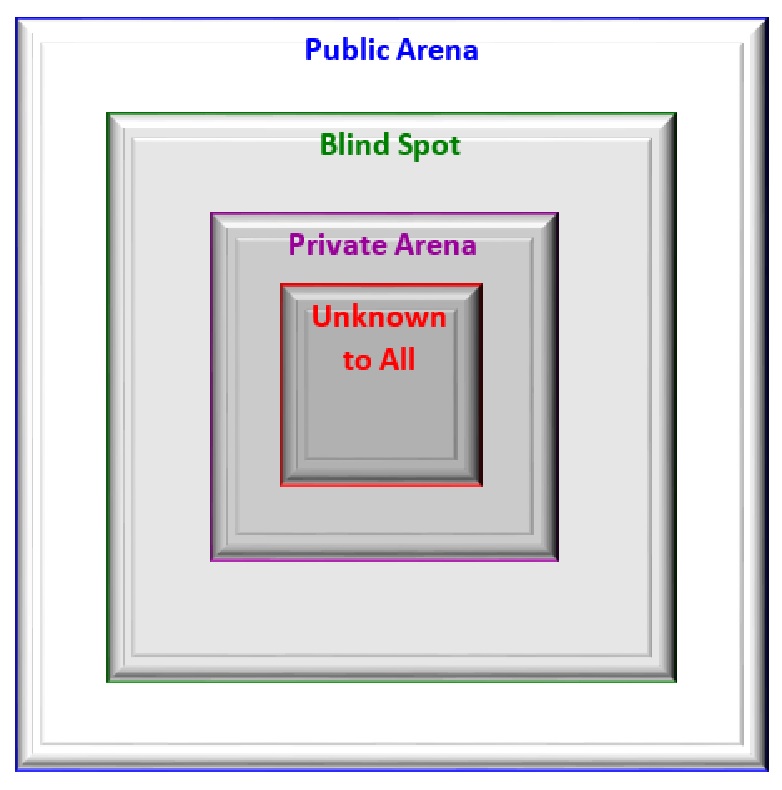
How do you improve your performance?
I wrote about the importance of walking your talk a few blogs ago. You can read it here.
In my previous two blogs, I shared two methods of achieving improved performance. Read here about one of my stories of not walking my talk, and how practice & commitment shifted my behaviour.
Identifying your personal values can be a challenge. Where do you start? Find out in my last blog here. (You can request the JPPS ‘Developing Your Personal Vision, & Creating Your Practice Vision’ guide by emailing me at julie@localhost.au).
Today I am going to describe another process that will help you explore and identify blind spots in your performance. But, this process does require you to get uncomfortable, so I hope you’re ready.
There is a technique called the Johari Model that is used to identify things that we know about ourselves and what others observe.

PUBLIC ARENA: what is known by you about yourself, and is also known by others
BLIND SPOT: what is unknown by you about yourself, but which others know
PRIVATE ARENA: what you know about yourself that others do not know
UNKNOWN TO ALL: what is unknown by you about yourself and is also unknown by others.
We all have elements about ourselves that we are quite open about, and elements that we prefer to keep private. Consider, though, that there are elements about you that others are aware of, but that you are quite blind to. It is identifying this ‘blind spot’ area and then doing something about it that can help improve your performance.
Engage the assistance of a trusted colleague. Let them know of your intentions to grow and develop your skills and your performance, so they feel comfortable in giving you frank and helpful feedback.
Ask your colleague how effective he or she perceives you in terms of:
- training a team member
- explaining a treatment plan to patients
- participation in team meetings
- listening to others
- supporting team members in their roles
- developing trust in others
- bringing helpful suggestions to the management of the practice.
Your openness to feedback from trusted sources provides you with increased awareness of how you behave, and therefore of how effective you are in the practice.
Use what you discover to improve your performance in the key areas that are important and relevant to you.